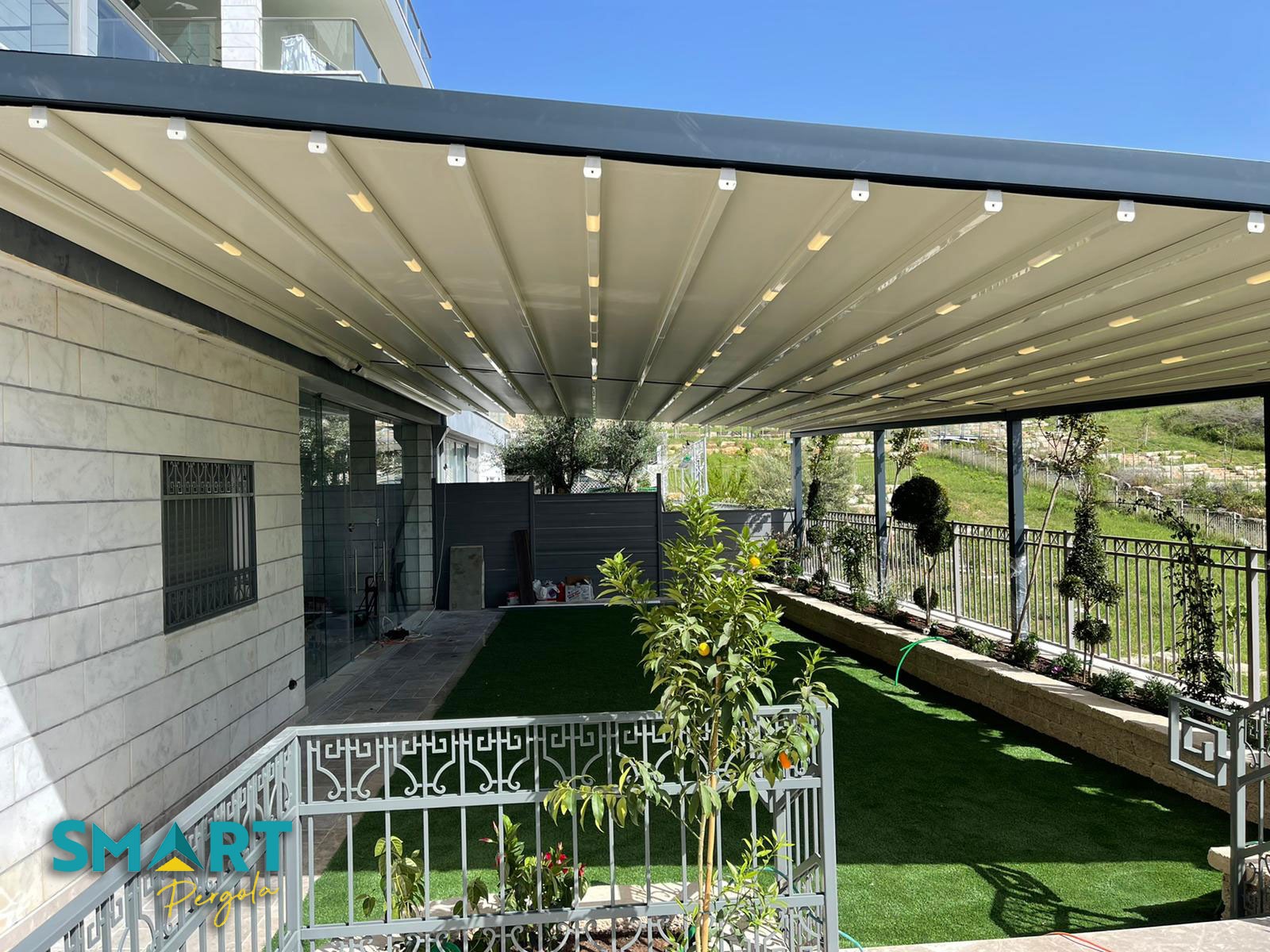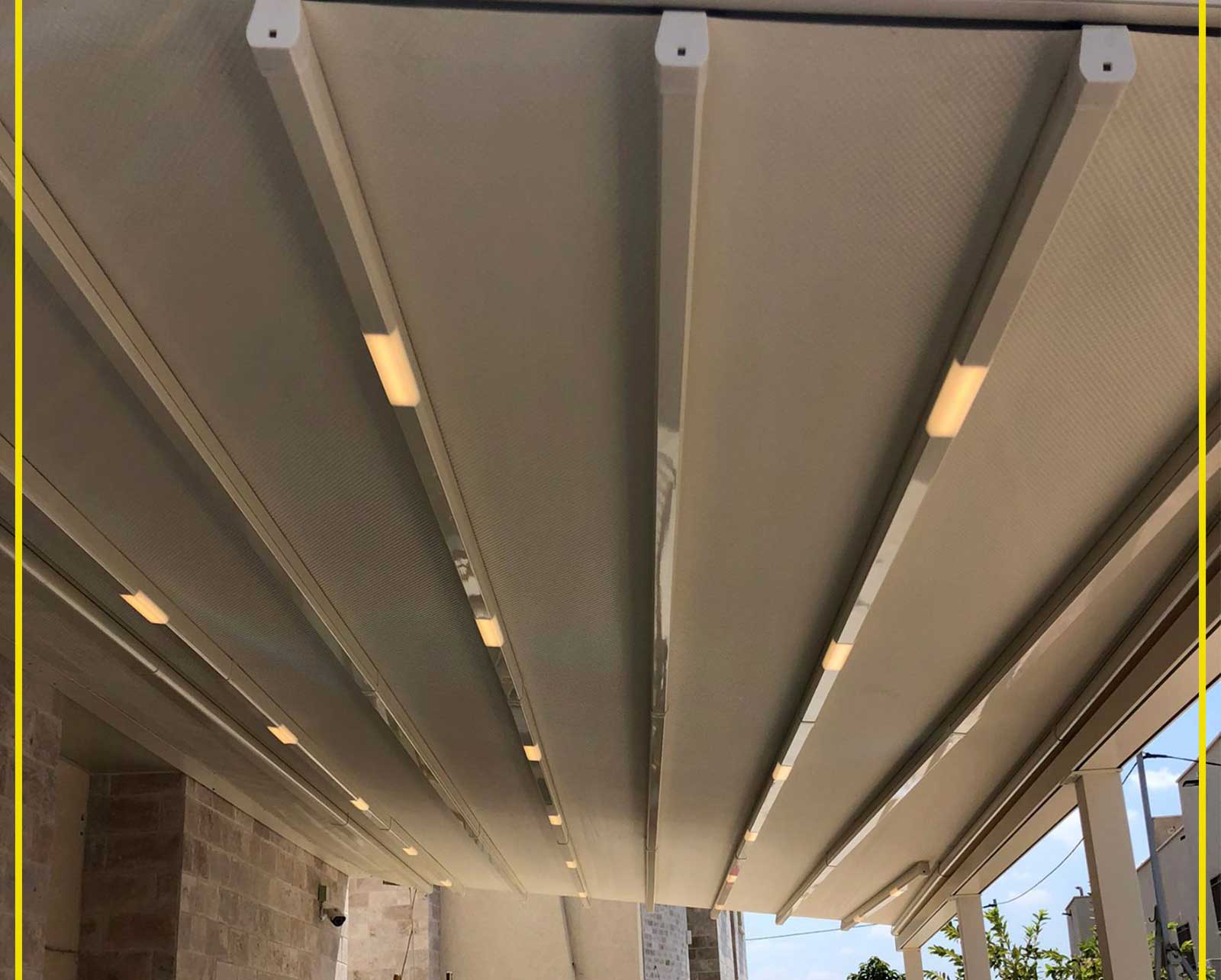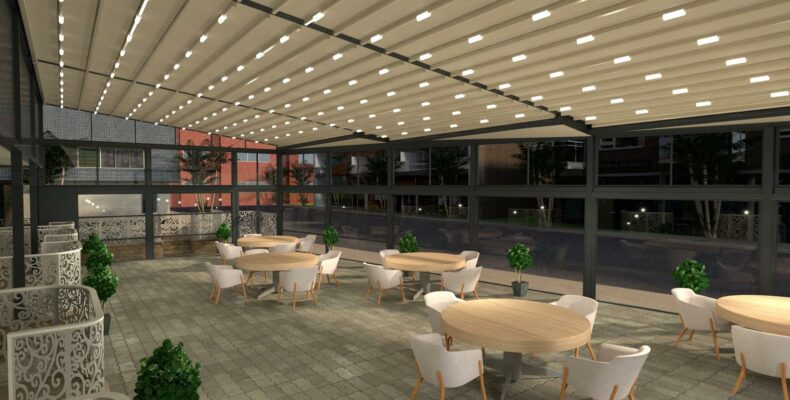A pergola is a wonderful addition to any outdoor space, providing a shaded area for relaxation and entertainment with family or friends. When it comes to adding a pergola to your outdoor space, whether it's for closing off a yard or a balcony, or for your business, you have a wide range of options to choose from. While traditional wooden pergolas remain a popular choice, more and more homeowners and business owners are turning to PVC pergolas for their many advantages.
Our company, Smart Pergola, specializes in pergola construction and has years of experience in advising and customizing the right pergola for our customers' needs. In this article, we will explore the differences between PVC pergolas and wooden pergolas, discuss their advantages and disadvantages, and clarify why PVC pergolas are often the best and most cost-effective choice.
The advantages of a PVC pergola compared to a wooden pergola are as follows:
● Durable and Long-Lasting:
One of the most significant advantages of PVC pergolas is their durability. PVC is a type of plastic known for its strength and resistance to wear and tear. Unlike wood, a natural material that is susceptible to decay, rot, and pests, PVC is nearly impervious to these factors. It won't rot, warp, or crack, and it has high resistance, making it an excellent choice for outdoor structures that need to withstand the test of time.
● Minimal Maintenance:
PVC pergolas are also much easier to maintain compared to wood pergolas. When it comes to wood pergolas, you need to stain, seal, and waterproof them to preserve their appearance and prevent weather-related damage. In contrast, PVC pergolas require minimal maintenance, and you can easily clean them with water and soap. This makes them a cost-effective choice for homeowners who want a beautiful outdoor structure without investing a lot of time, effort, and money into ongoing maintenance.
● Ultimate Convenience with Electric Pergola:
At Smart Pergola, you can find electric PVC pergolas that offer an entirely new level of convenience. Using an electric motor, you can open or close the pergola with just the push of a button, allowing you to quickly and easily adjust the amount of shade or sunlight in your outdoor space. An electric PVC pergola is also an excellent option for people with mobility issues or those who want to enjoy their outdoor space with minimal effort. It's a popular choice among restaurant and cafe owners looking for smart and convenient shade solutions for their customers, making the electric pergola an ideal investment that will provide comfort for many years.
● Various Installation Options Due to Light Weight:
PVC pergolas are lightweight materials, making them easier to transport and install compared to wooden pergolas, which can be heavy and difficult to move. Their lightweight nature provides more versatility in terms of installation options. You can install them on roofs, patios, and they are suitable for shared buildings, allowing you to create a shaded outdoor space in areas where it might not have been possible with a traditional wooden pergola.
● Customization and Personalization:
Another significant advantage of PVC pergolas is their customization options. While wooden pergolas can be customized to some extent, they are limited by the natural properties of wood. In contrast, PVC pergolas can be easily modified and designed in a nearly unlimited number of styles. You can tailor them to fit any home style or landscape design, and they are available in a wide range of colors, allowing you to choose a shade that complements your home and garden.
● Fading Over Time:
One potential drawback of PVC pergolas compared to wooden ones is the possibility of color fading over time. Natural wood can be sensitive to fading or yellowing when exposed to sunlight and prolonged weather exposure, so you may need to perform additional painting or staining to maintain its color.
● Cost-Effective:
PVC pergolas are also a more cost-effective option in the long run compared to wooden pergolas. While wooden pergolas may seem like a cheaper option upfront, the costs of maintenance, repairs, and replacement can add up quickly, making it a higher financial investment. On the other hand, PVC pergolas require a one-time investment, minimal maintenance, and can last for many years, making them more financially advantageous when considering the overall cost of upkeep.
● Environmentally Friendly:
PVC is a recyclable material, meaning it can be melted down and used to produce other products. In contrast, wooden pergolas are made from a non-renewable resource that requires a significant amount of energy to produce. By choosing a PVC pergola, you can reduce your environmental impact and make a more eco-friendly choice.
What are the disadvantages of a PVC pergola compared to a wooden one?
● Less Natural Appearance
One potential disadvantage of a PVC pergola is that it may have a less natural appearance compared to a wooden pergola. While wooden pergolas seamlessly blend with the natural surroundings, PVC pergolas can appear more artificial. However, this can be mitigated by choosing colors that complement the natural environment or by adding greenery around or within the pergola to create a more natural and cohesive look.
In summary, if you are looking for functional shade solutions or elegant patio and terrace enclosures, a PVC pergola from Smart Pergola is the perfect solution. Our company takes pride in providing professional service and delivering visually appealing, high-quality products. Our electric pergolas are designed to withstand weather conditions while offering a touch of elegance and sophistication to any outdoor space. With various customization options available, we can help you create the perfect pergola tailored to your specific needs and style preferences. We also ensure that our pricing is economically advantageous, providing excellent value for your money. With Smart Pergola, you can trust that you are investing in a product that is not only beautiful but also durable, practical, and cost-effective.






